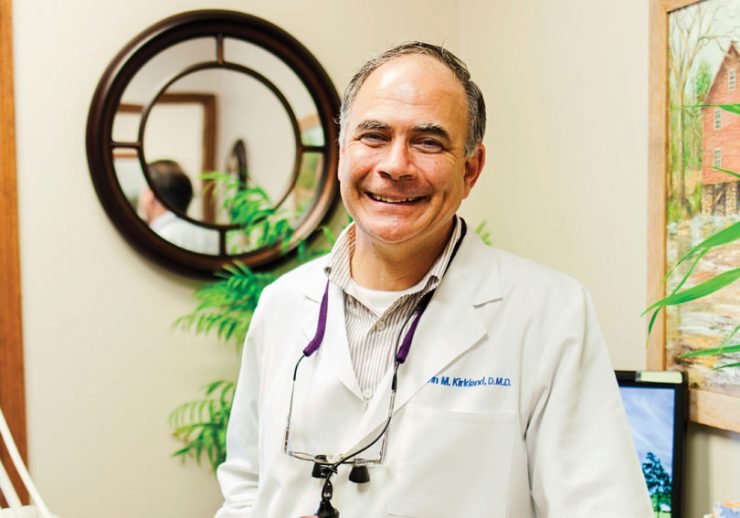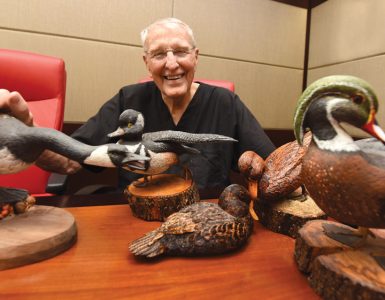Few dentists have a better understanding of the business side of the profession than Dr. Kevin M. Kirkland (’07), who obtained eight patents as a textile engineer and worked for years in corporate finance before embarking on a dental career. Kirkland, who practices general dentistry in Griffin, Georgia, shares the following tips based on his multifaceted experience.
>Pick your professors’ brains.
“Dr. Rick Callan (chairman of the DCG Department of General Dentistry) teaches an excellent course in practice management, one of the most important classes I took at the DCG. People who go straight to dental school after college—those without much business experience—don’t realize how good it is. Pay attention! The business plan I had to create for that class is what I ended up using for my actual practice. I got as much information from Dr. Callan as I could. I actually drove all my professors crazy by asking questions all the time. I realized that this was when I could get the information for free. (Laughs.) Don’t miss a single opportunity to learn as much as you can about both the practice and business of dentistry while you’re still in school.”
> Piggyback on an existing practice. “When you’re starting a private-practice career, it’s always better (and much less expensive) to find an existing practice than to start a new one. When I was preparing for my dental career, I visited several practices with retiring dentists and found one that was a really good fit. That is by far the best way to go. When deciding whether to buy the practice, I studied the financial records, assessed patient charts, checked out the equipment—everything. The dentist trusted me to be in his office by myself, which I took as a very good sign. He didn’t have anything to hide. Make sure the dentist you’ll be replacing shares your philosophy and high standards, then take advantage of the foundation that’s already been built.”
> Profit isn’t a four-letter word: “My focus is on devoting the time necessary for each patient, but the bottom line has to be sustainable. And the only thing worse than empty chairs is full chairs but no money. If you have an insurance plan, make sure you fully understand it. I don’t contract with an insurer—my model is pay as you go—but whatever business model you choose, make sure the numbers make sense. If you’re not making a profit, you’re not in a position to help anybody.”









